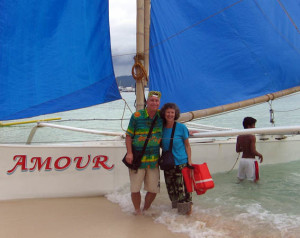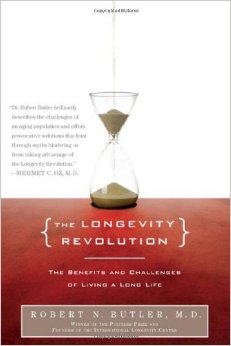
By Billy and Akaisha Kaderli
Special to the Financial Independence Hub
All your ducks are in a row. You have saved and carefully invested for years, and the personal discipline is about to pay off.
So why is there apprehension in the bottom of your belly? Let’s be honest. There is risk involved, and the future no longer seems certain or familiar.
“What if I forgot about something?,” you think, and start going over every plan you have made.
No one likes to admit straight out that they are afraid of retirement. Why, that sounds silly! But changing your life from one of being focused on work duties, raising a family, paying bills, and receiving that dependable paycheck every week to one of the virtually unknown has its own set of stresses. You’re being dishonest if you say it’s not a big leap mentally, emotionally, or financially.
Sometimes you have to take a leap of faith
 Lack of confidence often underlies questions disguised as logistics on how to retire. Sometimes, one must simply take the leap of faith, making a companion of the ever-present question “What if?”
Lack of confidence often underlies questions disguised as logistics on how to retire. Sometimes, one must simply take the leap of faith, making a companion of the ever-present question “What if?”
If you have spent your whole life building security and providing that same security the best you could for your family, then stepping into the unknown world of retirement is like jumping off a cliff. Even if you’re as prepared as you think you are.
Sure, we can distract ourselves with dreams of endless golf, or margaritas on an exotic beach somewhere, but when it’s quiet, we find ourselves looking over our shoulders, wondering whether some forgotten component is lurking just out of sight.
“What if I run out of money?.” you whisper to yourself.
Perhaps your personal fear mongering nemesis is health care in retirement, your portfolio balance or even something as simple as boredom. There can be great comfort gained from all of one’s time being planned out months in advance.
To expect retirement to be free of hitches or snags is unreasonable. There are no guarantees in life. None of us knows what the future will bring, and this is true whether you’re working or retired.
In our experience, how to contend with the fear factor in all its guises is an important point worth addressing. Fear keeps us on the defensive, often preventing us from taking positive action or noticing opportunities and the support that surrounds us. Let it be said that if you are afraid, it is more difficult on all fronts to have a successful retirement.
“What if … ?”
The “What If” syndrome is all-pervasive. It attaches itself to every aspect of your life. However, living life through the eyes of fear only amplifies that uncertainty. If you wait for that perfect time to do something, you may discover that it never arrives. Looking back over your life, you might see all of the missed opportunities for great adventures and memory-making that you set aside in your pursuit of that ever-elusive feeling of security.
So what do you do? Fear never leaves us, but the fortifying of our confidence helps us to cope. Find ways to transfer your talents and abilities to your new life. If you must, make a list of your strongest traits. Enumerate your interests and the ways you can best satisfy them.
Check out the phone book, the local library, or your weekly event newspaper for groups to join, ongoing education classes being given, or chances to volunteer somewhere that lets you offer your expertise in something. Exercise. Stay connected to society. Try something new. Following these suggestions will bring strength to your new life, expand your mind, and build up your spirit. From here, you will gain much-needed self-assurance, making it easier to surmount any obstacles you may encounter in your retirement.
About the Authors
Billy and Akaisha Kaderli are recognized retirement experts and internationally published authors on topics of finance and world travel. With the wealth of information they share on their popular website RetireEarlyLifestyle.com, they have been helping people achieve their own retirement dreams since 1991. They wrote the popular books, The Adventurer’s Guide to Early Retirement and Your Retirement Dream IS Possible. They are now also available at Amazon.







